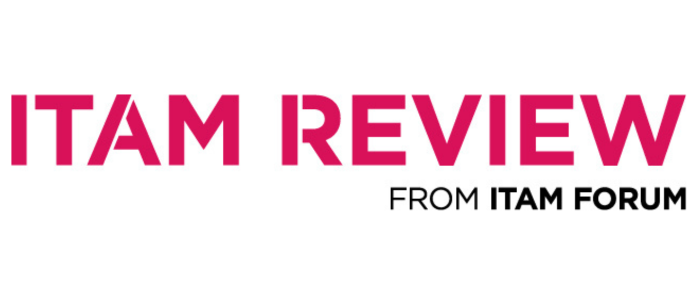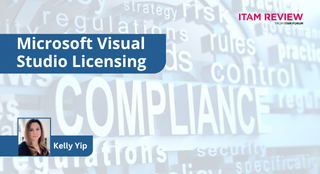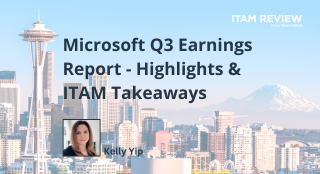EU rules against Oracle on second-hand software licensing
The EU court has decided that distribution rights end when and at the specific time that the original copyright holder (in this case Oracle) markets and then completes a sale of the software on what is denoted as one “material medium” or another including a CD-ROM, a DVD or through an Internet download. According to the Judgment in Case C-128/11 UsedSoft GmbH v Oracle International Corp. ruling, “Where the copyright holder makes available to his customer a copy – tangible or intangible – and at the same time concludes, in return for payment of a fee, a licence agreement granting the customer the right to use that copy for an unlimited period, that rightholder sells the copy to the customer and thus exhausts his exclusive distribution right,” the ruling read. European Court of Justice officials have ruled that the onward sale of second-hand software licences is permissible in the face of complaints levied by data giant Oracle.  Larry Ellison’s legal team had filed a case against UsedSoft, a German outfit that markets and sells markets licences that it acquires (perfectly legally it now appears) from Oracle customers. The EU court has decided that distribution rights end when and at the specific time that the original copyright holder (in this case Oracle) markets and then completes a sale of the software on what is denoted as one “material medium” or another including a CD-ROM, a DVD or through an Internet download. According to the Judgment in Case C-128/11 UsedSoft GmbH v Oracle International Corp. ruling, “Where the copyright holder makes available to his customer a copy – tangible or intangible – and at the same time concludes, in return for payment of a fee, a licence agreement granting the customer the right to use that copy for an unlimited period, that rightholder sells the copy to the customer and thus exhausts his exclusive distribution right,” the ruling read. Convener at ISO/IEC JTC1 SC7 WG21 Software Asset Management David Bicket argues that this ruling could now have significant cost saving implications for many customers.
Larry Ellison’s legal team had filed a case against UsedSoft, a German outfit that markets and sells markets licences that it acquires (perfectly legally it now appears) from Oracle customers. The EU court has decided that distribution rights end when and at the specific time that the original copyright holder (in this case Oracle) markets and then completes a sale of the software on what is denoted as one “material medium” or another including a CD-ROM, a DVD or through an Internet download. According to the Judgment in Case C-128/11 UsedSoft GmbH v Oracle International Corp. ruling, “Where the copyright holder makes available to his customer a copy – tangible or intangible – and at the same time concludes, in return for payment of a fee, a licence agreement granting the customer the right to use that copy for an unlimited period, that rightholder sells the copy to the customer and thus exhausts his exclusive distribution right,” the ruling read. Convener at ISO/IEC JTC1 SC7 WG21 Software Asset Management David Bicket argues that this ruling could now have significant cost saving implications for many customers.
“Not only could it stimulate major growth in the secondary market for software licenses, but it could also have implications for intra-company transfers, which are prevented by some publishers’ licensing terms and conditions,” he said.
“There will likely also be some ‘unintended consequences’, because it will mean that publishers cannot rely on their records to determine who owns what licenses. One very likely effect will be to increase the importance of strong management of licenses/entitlements, because it will be essential to demonstrate what you actually own, and attest to the correctness of that inventory, rather than relying on publisher records. We might also see clauses being introduced into contracts to require that such changes of license ownership are notified to the publisher, where transfers or sales were not previously permitted,” added Bicket.
Fight for your rights
The European Court of Justice has ruled that an “original acquirer” of a tangible (or intangible) copy of a computer program for which the copyright holder’s right of distribution is exhausted must make then copy downloaded onto his own computer unusable at the time of resale. It does therefore seem to be a pretty clear cut case and one that Oracle itself will not be able to fight against. Mark van Wolferen of b.lay argues that the EU ruling is not surprising. He goes further to say that it is good there is now clarity on this matter from a EU perspective as the practice of second hand software reselling has been in the market for over 10 years now, but mainly for off-the-shelf software.
“With this ruling I expect this market to expand,” said van Wolferen. “What the impact is for the enterprise software market has yet to be seen, as support and upgrade rights are the major question to hand here. The EU ruling does not force the publisher to provide support on these licenses; something that a lot of end users would like to see on a lot of enterprise software like Oracle’s. If these developments extend in this way, the impact could be significant.”
Fear, Uncertainty and doubt
Noel Unwin is managing director of Staffordshire UK-based Discount Licencing Ltd. Unwin contends that this court ruling puts a long awaited dent in the FUD (Fear, Uncertainty & Doubt) tactics employed by the market’s biggest software vendors and says that the ‘wider legality’ of the second-hand software market has been affirmed by this court ruling.
“I would point out that Usedsoft’s use of a notary (in part, to hide where the licences came from) has already been deemed not legally binding by the German courts and Usedsoft is now also going through insolvency proceedings. Secondary software licence clients should therefore always question the transparency of the secondary supplier’s business models so that there is tangible evidence of the transfer of ownership back to the original acquirer and that the software has been de-installed by the original acquirer – a notary certificate will not necessarily achieve this,” said Unwin.
The crux of this case hinges on the so-called Doctrine of Copyright Exhaustion which states that copyright holders (once they sell their work onwards) do not then subsequently own the rights to used second-hand versions/copies of their work – and that this rule applies even when that work is digital content that is downloaded from the web.
Can’t find what you’re looking for?
More from ITAM News & Analysis
-
Broadcom vs Siemens AG - A Brewing Storm
The ongoing legal battle between VMware (under Broadcom ownership) and Siemens is yet another example of why ITAM goes far beyond license compliance and SAM. What might, at first glance, appear to be a licensing dispute, ... -
Shifting Left Together: Embedding ITAM into FinOps Culture
During one of the keynotes at the FinOps X conference in San Diego, JR Storment, Executive Director of the FinOps Foundation, interviewed a senior executive from Salesforce. They discussed the idea of combining the roles of ... -
Addressing the SaaS Data Gap in FinOps FOCUS 2.1
I recently reported on the FinOps Foundation’s inclusion of SaaS and Datacenter in its expanded Cloud+ scope. At that time, I highlighted concerns about getting the myriad SaaS companies to supply FOCUS-compliant billing data. A couple ...
Podcast
ITAM training
Similar Posts
-
Microsoft Visual Studio Licensing Guide: Reduce Risks
(This article was reviewed and updated on 3 July 2025) Visual Studio Licensing Visual Studio subscriptions are licensed Per User with each licensed user able to. “install and use the software on any number of device”. ... -
Broadcom vs Siemens AG - A Brewing Storm
The ongoing legal battle between VMware (under Broadcom ownership) and Siemens is yet another example of why ITAM goes far beyond license compliance and SAM. What might, at first glance, appear to be a licensing dispute, ... -
Microsoft Power Apps: Current Pricing Models Comparison
Back in November 2021, Microsoft made Power Apps available under the pay-as-you-go (PAYG) model, alongside the traditional Per User/Per App options. This PAYG model has gained popularity. It ensures simple rightsizing for Power Apps environments. Here, ... -
Microsoft Q3 Soars as AI and Azure Growth Fuels Market Gains
On the 30th April, Microsoft released its Q3 quarterly earnings report, exceeding expectations and igniting investor optimism. Investors had been keeping a watchful eye on Azure’s Cloud performance after Microsoft’s Q2 Cloud results fell short of ...




